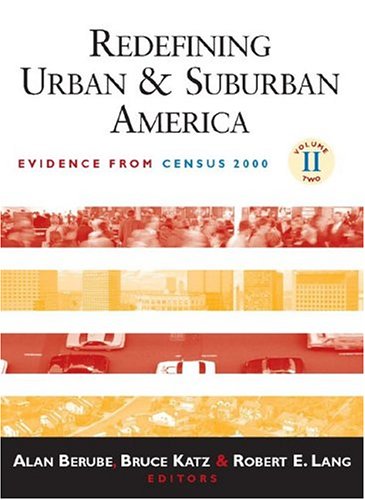

Most ebook files are in PDF format, so you can easily read them using various software such as Foxit Reader or directly on the Google Chrome browser.
Some ebook files are released by publishers in other formats such as .awz, .mobi, .epub, .fb2, etc. You may need to install specific software to read these formats on mobile/PC, such as Calibre.
Please read the tutorial at this link: https://ebookbell.com/faq
We offer FREE conversion to the popular formats you request; however, this may take some time. Therefore, right after payment, please email us, and we will try to provide the service as quickly as possible.
For some exceptional file formats or broken links (if any), please refrain from opening any disputes. Instead, email us first, and we will try to assist within a maximum of 6 hours.
EbookBell Team

4.8
64 reviews
ISBN 10: 0815748965
ISBN 13: 9780815748960
Author: Alan Berube
Results from Census 2000 continue to reveal the striking changes taking place in the nation's cities and suburbs during the 1990s. Thanks to a decade of strong economic growth, concentrated poverty in inner cities declined dramatically, homeownership rose among young minority households, and workers from abroad settled in growing metropolitan areas that had experienced little immigration to date. This second volume in the Redefining Urban and Suburban America series makes clear, however, that regional differences add texture to these broader social and economic trends. Using data from the Census "long form," the contributors to this book probe migration, income and poverty, and housing trends in the nation's largest cities and metropolitan areas. Economically, the fast-growing Sunbelt and the Midwest performed well in the 1990s, enjoying declining poverty rates, rising homeownership, and the evolution of a solid middle-class population. Cities like San Antonio, Chicago, Houston, and Columbus saw stunning declines in high-poverty neighborhoods. The story was more mixed in the coastal areas of the Northeast and West, where poverty rates rose in cities such as Boston, New York, Washington, and Los Angeles. On net, their metro areas lost residents to other parts of the United States, even as they gained workers and families from abroad. This volume provides a closer look at the unprecedented social and economic changes taking place in the nation's oldest and newest communities, and explores the implications for a diverse set of policy areas, including metropolitan development patterns, immigrant incorporation, and the promotion of affordable housing and homeownership.
5 urban areas
suburbs and redlining
sub urban km
definition of urban suburban and rural community
urban suburban and rural schools
american suburban life
meaning of urban suburban and rural
Tags: Alan Berube, Urban, Suburban